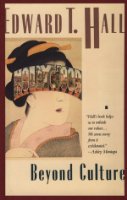 At some point in the not-too-distant future (we hope), you’ll be able to buy a new book, an anthology of papers related to Jesus mythicism. In it, you’ll find essays from the usual suspects, including Neil and me.
At some point in the not-too-distant future (we hope), you’ll be able to buy a new book, an anthology of papers related to Jesus mythicism. In it, you’ll find essays from the usual suspects, including Neil and me.
While neither of us would characterize himself as a mythicist (I still think of myself as an agnostic on the matter), we still hold that it’s a viable option that needs more research. Further, we’ve both been fairly outspoken on the poor scholarship and bad faith continually demonstrated by many anti-mythicists. Good theologians often make poor historians.
My paper is entitled: “‘Everything Is Wrong with This’: The Legacy of Maurice Casey.” Just to whet your appetite, here’s a small excerpt.
I would call your attention to perhaps the most common error in NT studies: confirmation bias. Our minds are wired to seek data that proves our arguments, which helps explain why Casey and many other scholars have discovered concepts like high-context culture, but have not followed through with due diligence.
If they had, they would have discovered that modern scholars have called Hall’s framework into question, and for good reason. It turns out that despite widespread approval from armchair sociologists, business gurus, and human resource directors, we lack the sort of research that definitively shows Hall was correct. A closer examination shows that he often relied on intuition and anecdotal evidence. In his writings, he neither described nor mentioned his methodology. Peter Cardon writes:
Although he provided few indications about how he collected data, several of his comments suggest that he did so primarily through qualitative interviews and observation. He did not mention using methods for qualitative data collection that would be considered rigorous by today’s standards, such as identifying alternative explanations (identifying best fit), negative case analysis, triangulation, review by inquiry participants, expert audit review, theory triangulation, sampling techniques, bias acknowledgment and credibility of researcher (researcher as instrument), coding schemes, analysis framework, or audit trail.1
Despite the nonexistence of research corroboration, which should have thrown up red flags all around, people have tended to quote from Hall’s works as if they contained hard, scientific facts. Cardon further points out that in cases where the researcher is the instrument for collecting and analyzing data, we need to exercise care so that personal biases do not color the results. Unfortunately, we have ample evidence of Hall’s deep biases:
In early works in which he developed contexting theory, however, Hall did not indicate motivations or biases. But close examination of Beyond Culture indicates that Hall (1976) generally characterized HC cultures in more favorable terms than he did LC cultures. Throughout his work, he strongly criticized LC U.S. institutional behavior in government, businesses, courts, and schools, which each represents the interests of the powerful at the expense of common people. He criticized many of the American tendencies directly tied to LC culture, including engaging only in linear thinking, looking at ideas not events, not taking the time to get to know people, ignoring important parts of context such as relationships, producing bad art, creating bureaucracy, relying on modern management methods, depending on management consultants, using government funds inefficiently and unfairly, conducting inaccurate research in social and biological sciences, manipulating the legal systems to benefit the powerful, having less personal work relations, behaving with ethnocentrism, and scapegoating to protect the powerful.2
To be fair, I probably share many of Hall’s criticisms. U.S. culture does, I think, tend to be too rigid and linear. But I hope I would recognize those biases, remembering continually to check myself and test my conclusions. Casey, on the contrary, apparently blinded by his own intellect, never seemed to recognize his own biases and how they affected his judgment. I suspect he latched onto Hall’s writings (presuming he more than skimmed Beyond Culture for serviceable quotes), because of his own antipathy toward the United States. He often used “American” as a derogatory adjective. American fundamentalism and American atheism were hugely problematic to him. In Jesus of Nazareth he referred to the Jesus Seminar as the American Jesus Seminar 23 times.
Where some might color in broad strokes, Casey used a paint roller. Commenting on Hall’s belief that America is on the lower end of the context scale, Casey wrote: “This is blindingly obvious, and partly explains why Americans and their followers imagine that ancient sources should have given far more information about Jesus than they do.”3 Despite the obvious disadvantage of being born in the United States, Hall found a fan in Maurice Casey.
- Peter Cardon, “A Critique of Hall’s Contexting Model: A Meta-Analysis of Literature on Intercultural Business and Technical Communication,” Journal of Business and Technical Communication, Vol. 22 No. 4 October 2008, 402
-
Cardon, “Critique,” 402
-
Maurice Casey, Jesus: Evidence and Argument or Mythicist Myths? London: Bloomsbury, 2014, 54
If you enjoyed this post, please consider donating to Vridar. Thanks!
